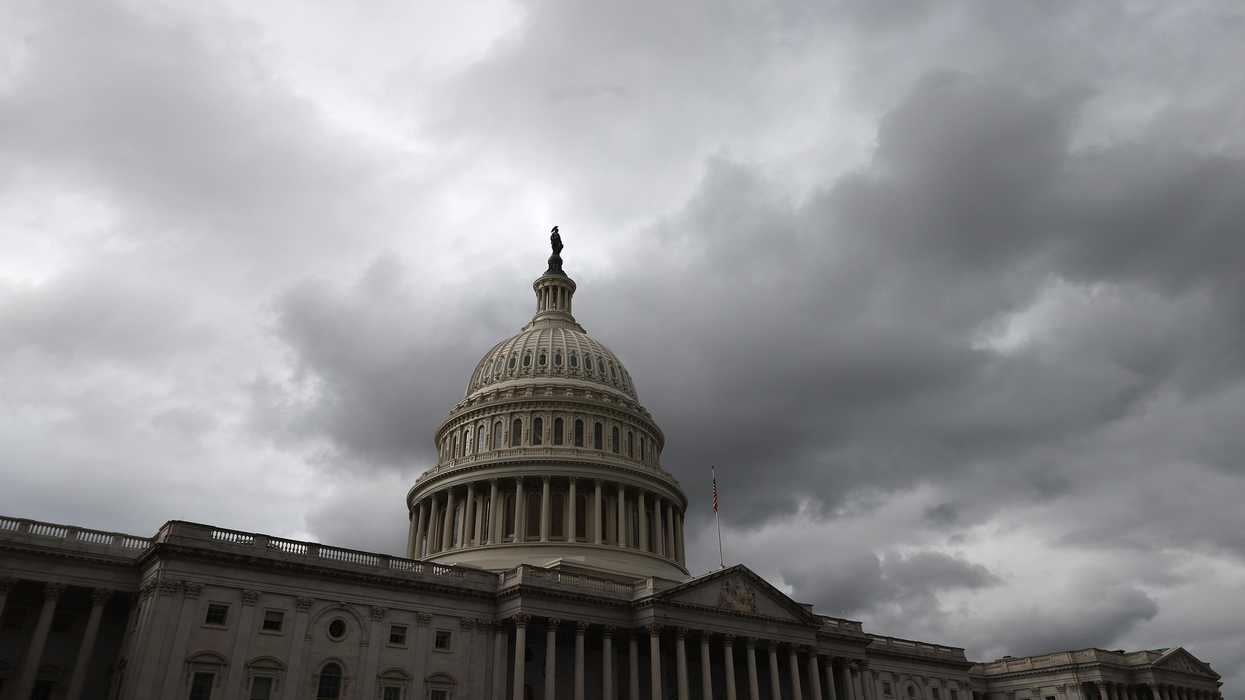Green is executive director of the Scholars Strategy Network, a nonprofit that seeks to improve public policy and democracy by connecting scholars and their research to policymakers, citizens and the media.
Next year will be a make-or-break year for American democracy. If pro-democracy Americans take the House, Senate and White House, the United States could be primed to pass momentous reforms — with scope and impact that could rival the Civil Rights Act and the Voting Rights Act of the 1960s. Reform in 2021 could undo much of the damage done over the last decade.
And what a decade it's been. The nation has witnessed rampant gerrymandering, the erosion of federal voting rights protections, deep dysfunction in Congress, ever-present corporate power in politics and foreign interference in our elections.
A multi-issue federal reform bill could make our democratic institutions more inclusive, fair and responsive than they have ever been.
The current occupant of the White House has been, of course, hostile to many democratic institutions. Replacing Donald Trump is a necessary condition for most forms of federal democracy legislation.
Yet necessary is far from sufficient.
Just after the 2008 election, I joined other democracy reformers at a meeting in New York City to hash out ideas for a national democracy reform strategy. Despite the best efforts of all involved, the meeting itself — as well as the public education and advocacy campaigns that followed — were too little, too late.
President-elect Barack Obama had already decided to handle the economy first, then health care and then climate change. Insiders in the Senate told democracy reformers we had a good chance to go fourth.
Of course, we never got there. Like climate change legislation, big national democracy reform did not happen in 2009-10 and therefore it did not happen at all.
History shows that major bills like democracy reforms nearly always only stand a chance at enactment in the first two years of a presidency, when a president's powers are greatest. And the Obama years were no exception.
Consider the big democracy reforms of the past. All five of the most important democracy reform laws since 1945 were produced in the first two years of a presidency.
The Help America Vote Act and the McCain-Feingold Bipartisan Campaign Reform Act were both enacted in 2002, George W. Bush's second year. The National Voter Registration Act came in 1993, in the opening months of Bill Clinton's administration. Back in 1974, right after Gerald Ford took office, we saw amendments to the Federal Elections Campaign Act. And the Voting Rights Act was passed in 1965 just after Lyndon Johnson's election in his own right.
Of course, people who care about democracy are wise not to put all their eggs in the federal basket. States and cities are important spaces for democracy reform, as this month's victory for ranked-choice voting in New York City shows. Yet the opposite is also true. People who care about democracy would be foolish not to try to set the table for national reform.
Listening to the debates in the Democratic presidential race, it is clear that democracy has a long way to go to get to the top of the agenda. For months, health care has been far and away the main issue in the campaign.
Candidates try to keep their promises. If all candidates talk about on the stump is fixing health care, that is what they are going to try to do when they get elected.
Democracy reformers can't necessarily get into the rooms to write their speeches. But reformers can and must persuade voters, journalists, interest groups and donors to ask the candidates what they'll do to strengthen democracy — and urge those candidates to prioritize democracy as issue one. And reformers can work on incumbents and candidates for the House and Senate, too, on both sides of the aisle. A president alone will not be enough.
There are other reasons for people who care about democracy to raise their voices in the national debate now. In an age of social media and fake news, research makes clear that early action and strategic communications are needed to share facts and evidence-informed narratives before rumors have a chance to take hold. False rumors — like the absurd notions that modernized voter registration systems or nonpartisan redistricting laws are plots to steal elections — need to be combatted immediately if those ideas, or ones like them, are to move forward in local, state or national legislation.
It is easier and cheaper to vaccinate key audiences and decision makers with good information early than it is to arrive late and try to dispel and contain misinformation.
Agenda-setting time is also near. The history of major public policy reforms shows that ideas need time to gain acceptance among decision-makers and influencers before the legislative term in which they are embodied in law.
For democracy reform to have a chance at the national level, work needs to begin now.
Next year is the crucial moment to set the table. In the worst case — if, for example, our anti-democratic president is re-elected — solid work in 2020 would have provided valuable momentum for democracy's Plan B: comprehensive reforms in 2021 in as many states as possible.
To some Americans, it is clear that the challenges facing democracy deserve to be at the top of the agenda. It is up to those of us who feel that way to make it so.



















